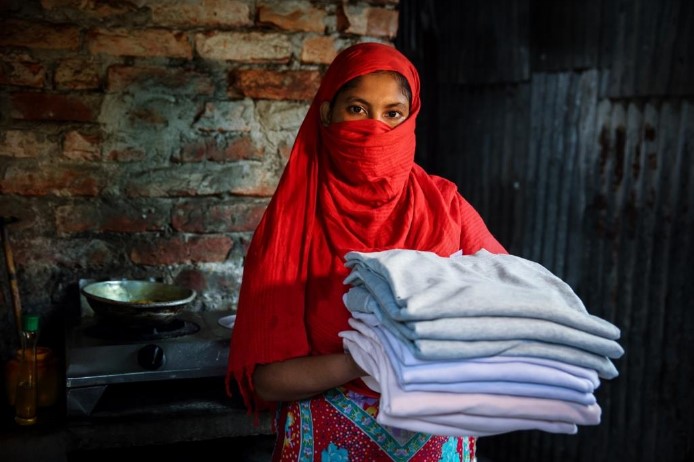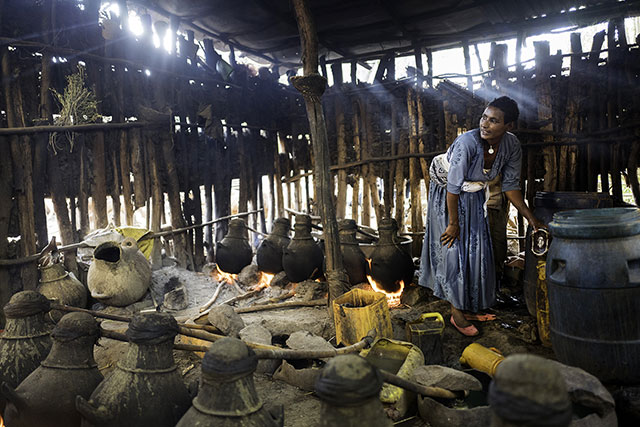Around the world, women perform the most work, earn less than men, do more unpaid work, and bear the brunt of the widening wealth gap. All of this is concentrating wealth in the hands of the world’s richest 1%. Together with our partners around the world, we develop skills and technical training programs, and we advocate for fair wages and decent working conditions to help women to achieve economic justice.
When we fight inequality, we beat poverty
When we fight inequality,
we beat poverty
Lan's Story
Forida’s Story

Forida is 22 years old. She lives with her husband, a rice miller, and her toddler son in Kallyanpur, a slum area in Dhaka, Bangladesh. She also supports her mother-in-law, who looks after her son while she is at work.
She makes clothes for major international brands and is only paid 35 cents an hour, less than the minimum wage in Bangladesh. Deductions have been illegally taken from her overtime wage for mistakes and inability to meet unrealistic targets.
“If we were paid a little more money, then I could one day send my son to school; we could live happily, we could lead a better life.”
Forida and her family have lived in a dark, hot and cramped compound with six other families, including her landlords, for three years. There is just one toilet and place to bathe for the whole compound, and two shared cooking areas. Constructed mostly of tin and wood, her living conditions are crowded and rundown. Forida says, “When it rains, there’s a smell in our home.”
Behind the rental property is a big, black polluted pond which increases her and her family’s risk of exposure to mosquito-borne viral diseases like malaria, dengue fever and Chikungunya.
Towards the end of each month, Forida’s salary runs out and she just eats “old watery rice, with salt and green chilli”. If she was paid a living wage, Forida could “provide food for the last week of the month [and] eat better food like vegetables and meat”.
Each day, like all garment workers, Forida is given a target that she must complete before she can go home.
The pressure at work is intense. If she makes any mistakes, she is verbally abused by her supervisor. “I feel embarrassed when I am scolded in front of so many people and then I feel bad about myself because I’m not able to do the work properly.”
Forida hopes for more realistic targets and a better wage.
“If I got a living wage, I could provide food for the last week of the month, I could eat better food like vegetables and meat."
Alem's Story



